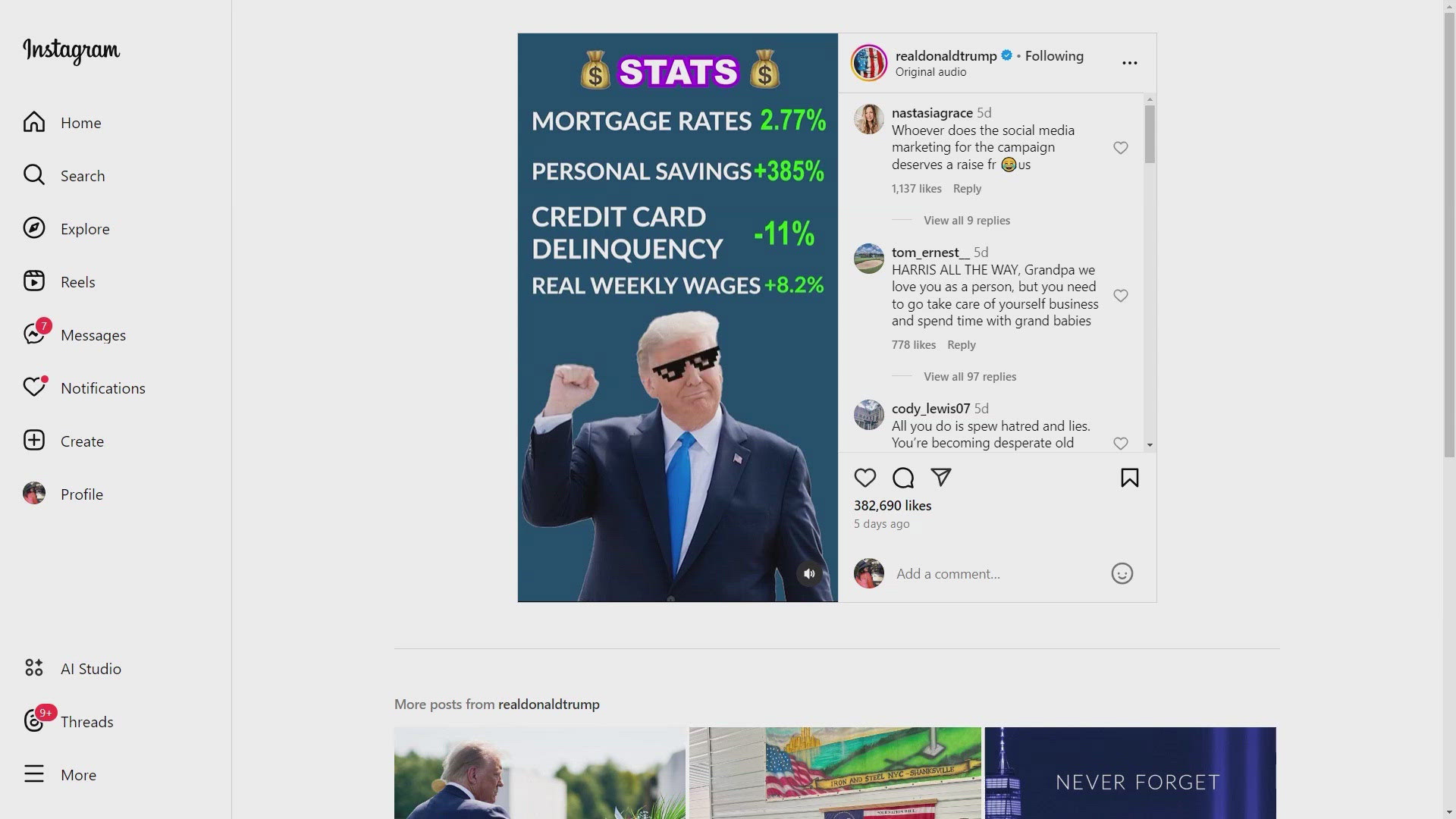SAN ANTONIO — Social media has been on fire after Tuesday's presidential debate.
Political memes, videos and discussions flooded users' feeds.
Experts say now more than ever, people are talking politics online. For that reason, campaigns are paying billions of dollars for political ads to be there.
With more campaign spending going digital, what will the effect be for political advertisements we see on traditional TV? KENS 5 posed the question to an expert: Wendy Gratereaux, Professor of Practice in UTSA's Marketing Department who specializes in social media and digital marketing.
"It's gonna be really hard to change the minds of people who are already set in their ways and a little more mature in their political ideologies," said Gratereaux, speaking about the older demographic that tends to watch television. "Knocking on doors isn't as effective as commenting and being part of communities online."
Around this time of every election year, the TV political ads are ramping up.
Every election, the political advertising strategy evolves.
In the world of social media and the "share" button, Gratereaux says these campaigns are reaching followers online faster than a TV can.
"They'll be sharing your content which you can't do with a television commercial," she explained.
Gratereaux says in this age of influencers and content creators, political campaigns are using them to their advantage.
In minutes, a post about a candidate can go viral.
But, Gratereaux says consumers should remain vigilant for misinformation.
"The algorithm is very aggressive on making things go viral pretty quickly. Things that are maybe made for fun or made without being fact checked can get pushed out very quickly," she said.
Since the 2020 election, Meta, which operates Facebook and Instagram, now heavily regulates political ads.
"If you were gonna run a paid advertising campaign, there are a lot of hoops you have to do. You can not do demographic targeting with those campaigns, the same for financial targeting," said Gratereaux.
YouTube, X, and TikTok don't have the same oversight.
"They get to push or promote content before it gets filtered out," she explained. "To help the user understand is this graphic content? Is this accurate? Is this something that was generated with AI?"
Market research company EMARKETER says digital ad spending this year will spike 156% compared to 2020 numbers, hitting $3.46 billion. Connected TV (CTV) ad spending, which includes streaming services, will jump a whopping 506%, dishing out $1.56 billion.
Leading up to Election Day, everyday businesses should expect a hike in advertising rates on digital platforms. They'll have to pay a pretty penny to be heard through the election noise.
"The costs go up 4X, 10X in certain markets," said Gratereaux, pointing to battleground states.
Although there's an increase in dollars going toward digital advertisements, traditional ads still make up the biggest slice of campaign pie. $8.86 billion will go to tv, radio and print political ads — a growth of 7.9% from the 2020 election.
To learn how you can check misinformation online, CBS news compiled a checklist.

